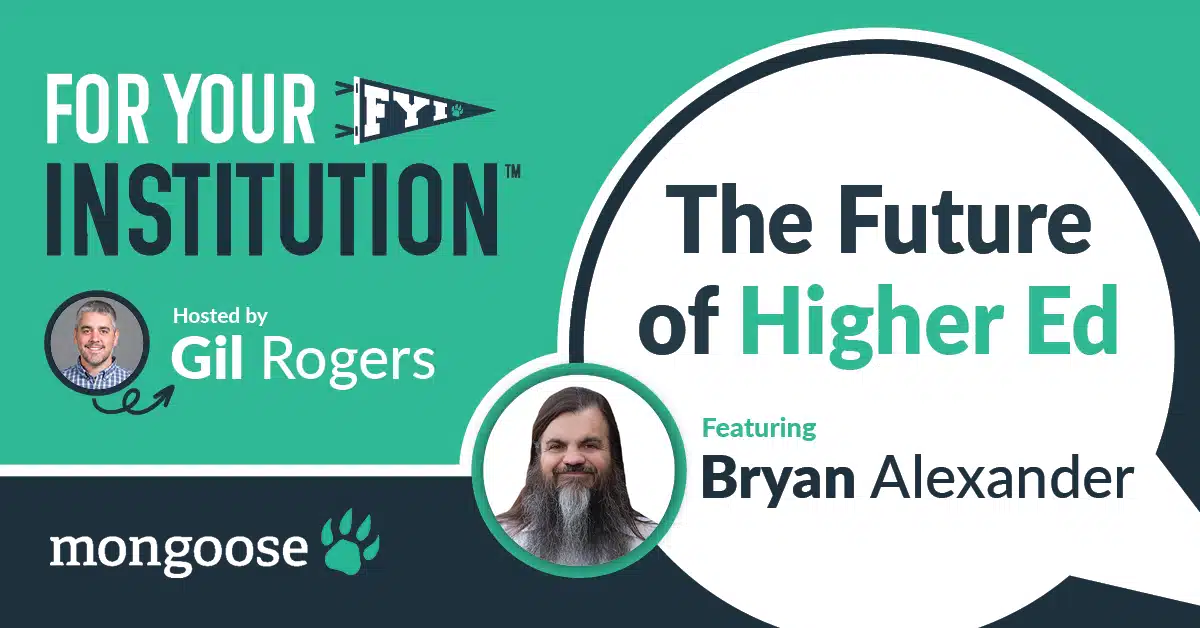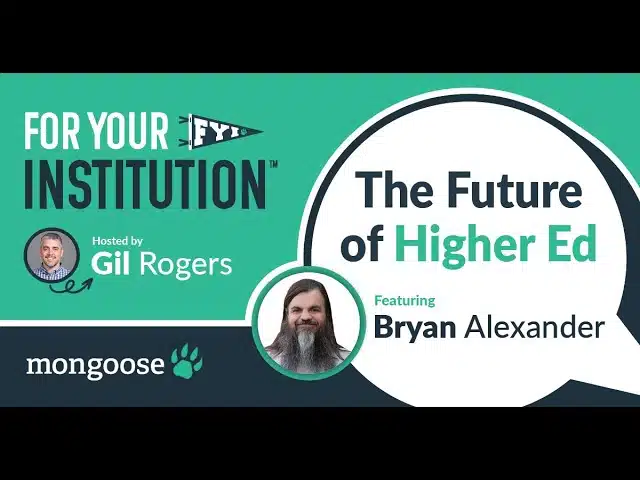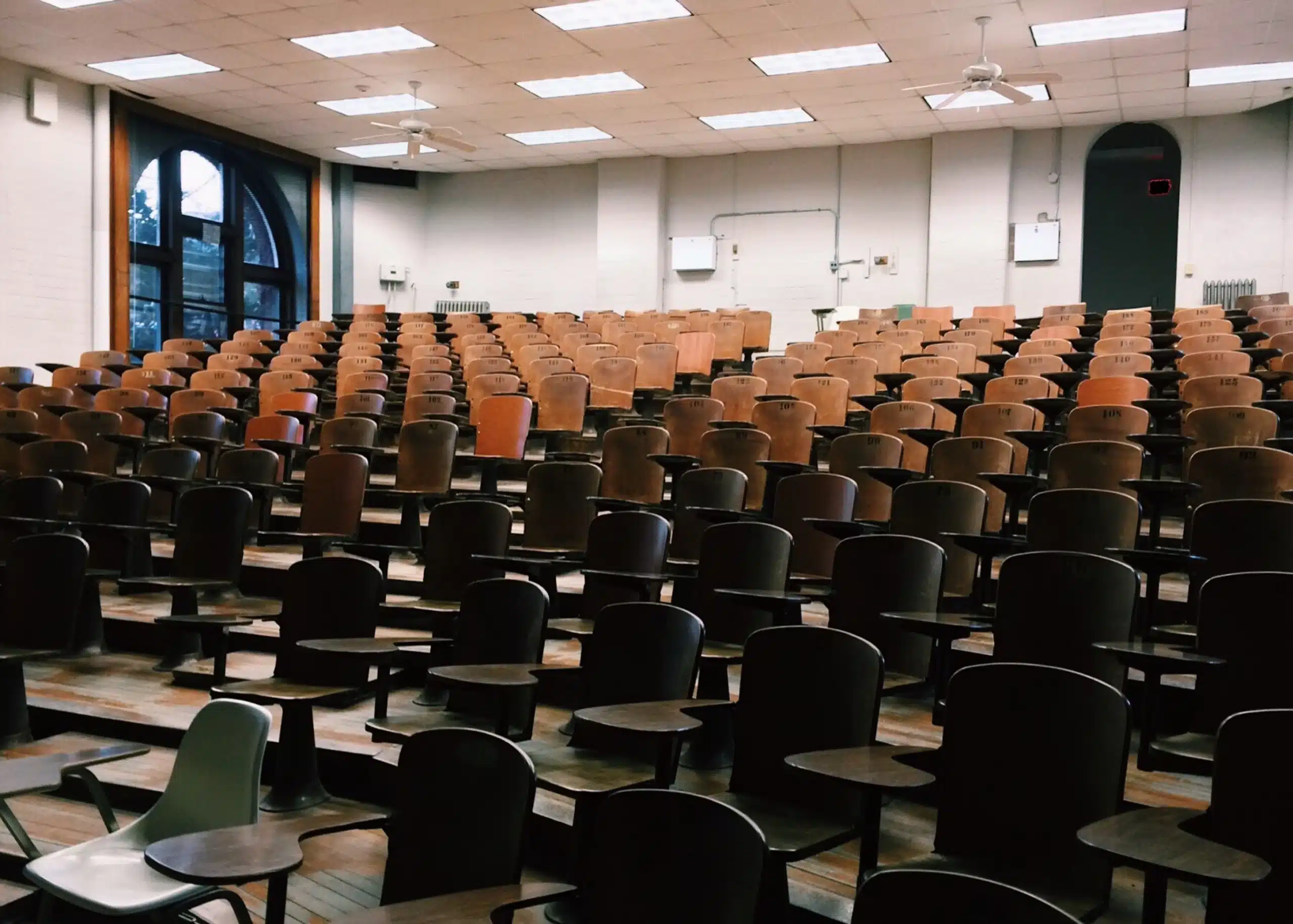Future Trends in Higher Education with Bryan Alexander

Your favorite higher education podcast, For Your Institution, returns for season two and features Gil Rogers, our new host with the most, interviewing some of the best and brightest in the industry. As always, FYI is bringing you the latest news, trends, and topics in higher education.
🎧 Click here to listen to the full episode 🎧
So, Who is Gil Rogers?
Gil brings more than two decades of higher education experience to guide our guests into sharing their expertise.
When he’s not playing FYI host or ed-tech marketing guru, you can find him on the bench coaching his son’s youth hockey and baseball teams or exploring the North Woods of Maine with his wife, kids, and dog, Buttercup.
Who is Bryan Alexander?
This week’s guest, Bryan Alexander, is an award–winning, internationally known futurist, researcher, writer, speaker, consultant, and teacher — a list of titles and accomplishments nearly as long as his beard.
Specializing in the future of higher ed, Bryan’s work is often featured in Inside Higher Ed, the Washington Post, The Wall Street Journal, and The Chronicle of Higher Education, among many others. As a futurist, Bryan uses his forward-thinking and expertise to predict and pinpoint upcoming trends and scenarios for the industry. You can learn all about Bryan and his latest book, Universities on Fire here.
In this Episode…
Bryan and Gil discuss the future of virtual reality, augmented reality, as well as artificial intelligence and what it could mean for students, faculty, and even staff on campus. Bryan says these tools have growth potential and can help students grasp subjects more easily and be used as engagement tools to assist learning and teaching.
“If we think about students finding their voice, students finding marketable skills, we’ve already seen this in other media like video, like podcasts. So, it’s just natural to expect that we should see that in AR/VR,” says Bryan.
Gil adds that this technology can be brought to those who may not have access to it via college fairs to help future students experience campus even from a distance. He adds that something like an oculus could be a “competitive recruitment advantage when distributing content” for Admissions offices.
The struggle of adding AR/VR into the curriculum or in a marketing strategy comes in the form of building the infrastructure to support faculty in becoming experts in using the technology and providing the hardware.
Gil and Bryan also highlight the impact of climate change and scenarios that institutional leadership will need to weigh in on to decide the future of how institutions utilize technology on campus.
Bryan argues for cutting back on technology and moving more to the cloud to cut the carbon footprint of campuses. On the other side, Bryan says, is the merit of adding more technology, increasing the amount of virtual work for employees, as well as attending more virtual conferences to reduce travel can help.
Both agree that the voice of the students needs to be brought into these conversations to help decide on the future of institutions.
“I think it’s really, really important– as we think about reforming, revising, rethinking higher education– that we invite the students to help co-create this next generation of colleges and universities. Their experience is powerful, and we really owe it to them,” says Bryan.
Gil adds, “Part of my philosophy my entire career has been keeping students at the core and the forefront of all conversations. I think sometimes we miss that part when we are caught up in our day-to-day, which is ironic because our day is supposed to be the work that supports and impacts students.”
Grab your popcorn and tune in to hear all of this and more!
Subscribe to receive new episodes of FYI right in your inbox and share the episodes with your friends and colleagues.




